The Leishmania LaLRR17 protein plays a key role in infection of macrophages
In this work we show that LRR17, a secreted Leishmania protein never reported before, facilitates parasite attachment and internalization by the macrophage.

In this work we show that LRR17, a secreted Leishmania protein never reported before, facilitates parasite attachment and internalization by the macrophage.

Last month Cambridge University Press & Assessment (CUPA) announced the first sponsorship of a question in its innovative Research Directions: One Health journal.…

This research enhances our understanding of the Echinococcus granulosus complex and its impact on human health.

The latest Paper of the Month for Parasitology is “Rat lungworm (Angiostrongylus cantonensis) active larval emergence from deceased bubble pond snails (Bullastra lessoni) into water” and is freely available. …

In Parasitology's latest article, we reveal the genetic identity for one of the last Echinococcus isolates in Iceland, obtained from a sheep 46 years ago.

The latest Paper of the Month for Parasitology is Comparative transcriptomics from intestinal cells of permissive and non-permissive hosts during Ancylostoma ceylanicum infection reveals unique signatures of protection and host specificity and is freely available. …

The latest Paper of the Month for Parasitology is “Immunological mechanisms involved in macrophage activation and polarization in schistosomiasis” and is freely available.…
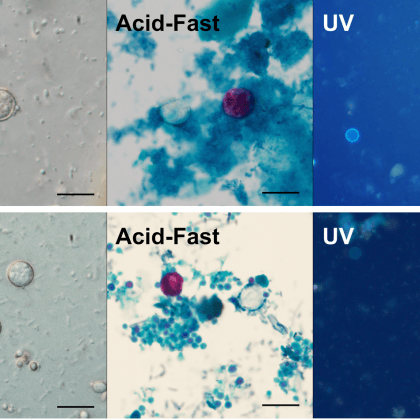
Despite its impact on United States (US) food safety since the 1990’s, efforts to understand Cyclospora cayetanensis genetics only really began within the last 7 years. However, we have learned a great deal over that time; genotyping technologies now exist for Cyclospora, and these are being used routinely to complement cyclosporiasis outbreak investigations performed by US public health agencies

Editor-in Chief of The Gut Microbiome Journal, Andrea Azcarate-Peril, answers 3 questions for International day of Women and Girls in Science.

On a global basis, mental health is an issue almost unimaginable in its scale. The World Health Organisation (WHO) recently estimated that some 300 million people suffer from depression worldwide, and that every 40 seconds someone commits suicide with causes including mental health afflictions, such as depression. Indeed, the WHO says that, among those aged 15 to 29, suicide is a ‘leading cause of death’ – and that the majority of these are in low- or middle-income countries.

The latest Paper of the Month for Parasitology is Global epidemiology and molecular biology of Taenia multiceps: a comparative meta-analysis and in silico analysis study and is freely available for one month.…

Dame Anna Dominiczak, the first female chief scientist for health in Scotland and Editor-in-Chief of the new Cambridge Prisms: Precision Medicine journal, details her stellar achievements since her move from Gdansk to Glasgow 40 years ago

As the global human population approaches the 8 billion mark, it is sobering to think that around one third of these people will be carrying a parasitic helminth (worm) infection.…

Traditional models of conformity posit that individuals respond to the frequency of a behaviour amongst a social group only. This gives the impression that conformity functions like a rule-of-thumb to ‘always copy the majority’. This view does not align with recent research which shows that our use of social learning strategies is likely to be flexible. To extend this research, we ask whether an individuals’ decision to conform to the majority of a group will be flexible based on certain social information about the group from whom they learn.

Beginning with volume 43 (2022), the cover of Infection Control & Hospital Epidemiology (ICHE) features art inspired by or reflective of topics within the scope of the journal and their impact on patients, healthcare personnel and society.…

Welcome to our “Meet the Editors” series, where we interview the editorial team about their work and their relationship to the journal. In this post we meet Dr Lisa Ranford-Cartwright, Editor for Parasitology

The latest Paper of the Month for Parasitology is “Immunochemotherapy for visceral leishmaniasis: combinatorial action of Miltefosine plus LBSapMPL vaccine improves adaptative Th1 immune response with control of splenic parasitism in experimental hamster model” and is freely available for one month. …

Cytotoxic T lymphocytes (CTLs) belong to our bodies’ most effective weapons in the fight against distorted cells, such as cells infected by viruses or cancer cells.…

On 30th January, we celebrate World Neglected Tropical Diseases Day. This annual celebration highlights the hard work and achievements of the many researchers, medical workers, NGOs and other committed individuals in this field, and acts as a convenient forum to demand and sustain the necessary concerted actions to #BeatNTDs.…

As 2021 draws to a close, we pause to reflect on this year’s launch of Antimicrobial Stewardship & Healthcare Epidemiology (ASHE). …
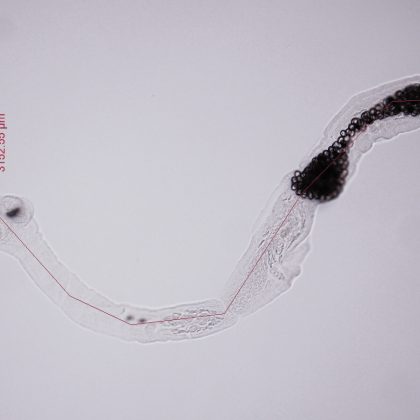
Biological invasions have significant impacts on biodiversity, community structure, and ecosystem processes, often leading to the emergence of diseases that could have significant economic, public health, and conservation implications. These invasions are usually driven by anthropogenic disturbances on ecosystems and the increased movement of goods and people on a global scale.

Global Handwashing Day 2021 attempts to raise awareness of the importance of good food and hygiene habits, as well as the fact that access to facilities and resources to achieve this necessary hygiene is still not global.…

Cryptosporidium species are intestinal parasites that infect a wide range of vertebrate host species, causing a considerable burden of gastrointestinal disease. Cryptosporidium infections in humans are mostly caused by two species: C. hominis, which is primarily transmitted from human-to-human, and C. parvum, which is mainly derived from animals, particularly livestock.

The latest Paper of the Month for Parasitology is “Historical contingency, geography and anthropogenic patterns of exposure drive the evolution of host switching in the Blastocystis species-complex” and is freely available for one month.…

Welcome to our “Meet the Editors” series, where we interview the editorial team about their work and their relationship to the journal.…
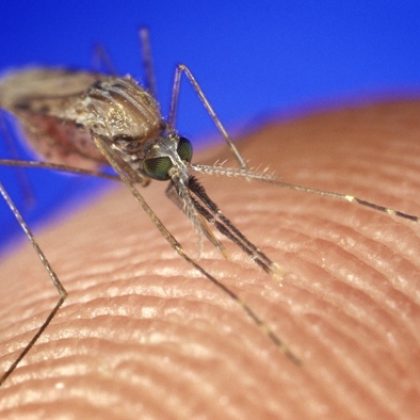
Sunday, April 25th is World Malaria Day. A day when we celebrate the remarkable successes in the fight against malaria over the past two decades.…

The latest Paper of the Month from The Journal of Laryngology & Otology is “A rise in facial nerve palsies during the coronavirus disease 2019 pandemic“, by M.…

The latest Paper of the Month for Parasitology is “Early immune responses and parasite tissue distribution in mice experimentally infected with oocysts of either archetypal or non-archetypal genotypes of Toxoplasma gondii“ Toxoplasmosis is a well-known disease caused by the single celled parasite called Toxoplasma gondii, which is found worldwide.…

Parasitology has just released a Special Issue from the 6th International Workshop on Angiostrongylus and Angiostrongyliasis, Hilo, Hawai’i , USA, January, 2020 When a parasite is given the common name “rat lungworm” you know it is going to be a particularly unpleasant one.…
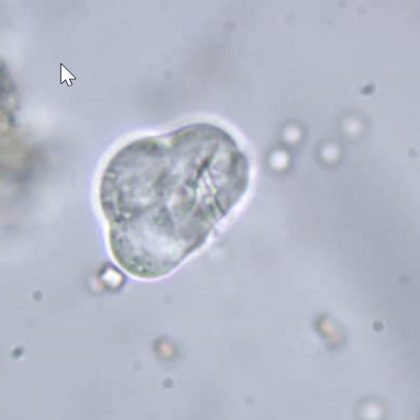
The latest Paper of the Month for Parasitology is Agranulocytosis leads to intestinal Echinococcus multilocularis oncosphere invasion and hepatic metacestode development in naturally resistant Wistar rats Let me introduce you to a tiny tapeworm that is widely distributed in the northern hemisphere: Echinococcus multilocularis.…

The latest Paper of the Month for Parasitology is Arg-substituted VmCT1 analogs reveals promising candidate for the development of new antichagasic agent Molecules isolated from the venom of scorpions can be used as alternative treatments for parasitic and bacterial infections.…

Welcome to our “Meet the Editors” series, where we interview the editorial team about their work and their relationship to the journal.…

Parasitology are delighted that a special issue on Angiostrongylus will be published next year. In this blog post Professor Cowie from the University of Hawaiʻi gives us some insight into this parasite.…

More than a third of people (34%) in Turkey and one sixth of people (17%) in the UK are ‘hesitant’ about a COVID-19 vaccine, according to a study by UCL and Dokuz Eylul University in Turkey.…

October 15 is Global Handwashing Day, a global advocacy day dedicated to increasing awareness and understanding about the importance of handwashing with soap as an effective and affordable way to prevent diseases and save lives.…

There is evidence that self-harm is becoming more common among young people. It’s therefore increasingly important to identify the factors associated with self-harm so that help can be provided earlier to young people who may be most at risk.…

The latest Paper of the Month for Parasitology is A comparative study of parasites in three latrines from Medieval and Renaissance Brussels, Belgium (14th–17th centuries) In modern times intestinal parasites such as protozoa that cause dysentery and multicellular helminths (worms) are largely a problem for people in low-income countries in the tropics where sanitation and food safety are poor.…

Welcome to our “Meet the Editors” series, where we interview the editorial team about their work and their relationship to the journal.…

The latest Paper of the Month for Parasitology is Conquering Switzerland: emergence of Angiostrongylus vasorum over three decades and rapid regional increase in the fox population contrasts with the stable prevalence of lungworms Did you know that foxes can harbour a heartworm which can cause respiratory problems or bleeding in your dog?…

With over 2,400 copies sold, and being a textbook for most of the clinical embryology Masters courses, our book Quality and Risk Management in the IVF Laboratory, 2nd edition clearly resonates with those working in IVF labs around the world.…

The first edition of In-Vitro Fertilization was published in 1997, when the resources of the Internet and the World Wide Web were not yet widely available: material was compiled using printed information and our own personal experiences.…

World Embryologist Day this year will be celebrated on Louise Brown’s 42nd birthday. To celebrate her 40th in 2018, Cambridge University Press published “In-Vitro Fertilization: The Pioneers’ History”, and the book was launched at Louise’s 40th birthday lunch at Bourn Hall.…

The latest Paper of the Month for Parasitology is Small RNAs in parasitic nematodes – forms and functions How do parasitic roundworms, also known as nematodes, develop and adapt to the conditions within the host?…

The latest Paper of the Month for Parasitology is “IgM+ memory B cells induced in response to Plasmodium berghei adopt a germinal centre B cell phenotype during secondary infection“ Malaria remains one the most serious infectious diseases of humans with ~200 million clinical cases every year. …

Higher Education from Cambridge University Press is our new online textbook website, launched in August 2020. In recent months Cambridge University Press has introduced a new set of strategies to support changing teaching and learning needs as higher education institutions prepare for a more digitally driven future in the wake of pandemic.…

The latest Paper of the Month for Parasitology is “Messenger RNAs with large numbers of upstream Open Reading Frames are translated via leaky scanning and reinitiation in the asexual stages of Plasmodium falciparum“ Malaria, an ancient disease, continues to infect millions of humans worldwide, with Plasmodium falciparum parasites being the causative agents of the majority of severe malaria cases and fatal outcomes.…

The COVID-19 crisis is an unprecedented one in terms of its reach and pervasiveness, and it exposed the vulnerabilities of the global social, political, and economic system. That said, its impact on countries has been uneven and this unevenness depended heavily on the position countries were in immediately prior to the crisis. In Turkey, the key issue of youth un/employment emerged as one of the long-lasting ones since it was a major challenge before the crisis. Policy-making emerged as another key issue as the ability to generate long-term planning escaped Turkey and countries alike for a while. Regardless of when we will get past the pandemic, the post-COVID-19 world will be an extremely difficult one.

Let’s face it – stepping (sitting) in front of a camera has become a staple component of working from home during the global pandemic.…
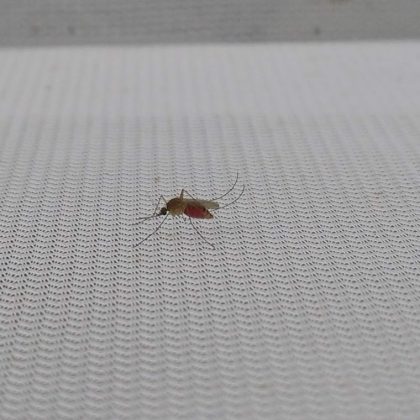
The latest Paper of the Month for Parasitology is Plasmodium transmission differs between mosquito species and parasite lineages Mosquitoes are one of the main vectors of pathogens such as Plasmodium, the causative agent of malaria, that affect humans and other animals.…
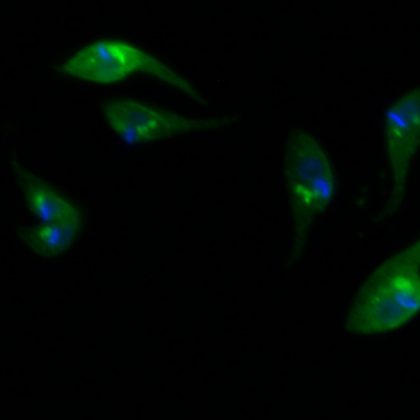
The latest Paper of the Month for Parasitology is Computational approaches for drug discovery against trypanosomatid-caused diseases Neglected tropical diseases (NTDs) caused by trypanosomatid parasites such as American trypanosomiasis (Chagas disease), human African trypanosomiasis (sleeping sickness) and leishmaniasis affect millions of people worldwide, mainly in developing countries, and consequently produce a significant health, social and economic impact.…

In times of health adversity the nurse has always been there, and now more than ever nurses are stepping up and out of there comfort zone to provide nursing care.…

International Year of the Nurse and the Midwife and World Health Day 2020 provides a wonderful opportunity to raise the profile of nurses and midwives.…

When I reflect on the theme for World Health Day 2020, I realise how far nurses and midwives have come in the past 50 years.…

Many of us are discovering that working at home for a long stretch can be difficult. Staying productive and motivated is a challenge, and it is not always easy to find a routine to keep things running smoothly.…

This is the latest of an ongoing series of interviews with people involved with our new Open Access journal, Experimental Results – a forum for short research papers from experimental disciplines across Science, Technology and Medicine, providing authors with an outlet for rapid publication of small chunks of research findings with maximum visibility.…

Children with ADHD from the poorest areas are significantly more likely to receive medication as children with ADHD from the most affluent areas, according to the first UK study of its kind published in BJPsych Open.

This is the latest of an ongoing series of interviews with people involved with our new Open Access journal, Experimental Results – a forum for short research papers from experimental disciplines across Science, Technology and Medicine, providing authors with an outlet for rapid publication of small chunks of research findings with maximum visibility.…

A new open access journal from Cambridge University Press, published in partnership with The Nutrition Society, will explore the vital interaction between people and the complex community of microorganisms that live in our digestive systems The journal, Gut Microbiome, will look at the factors that influence this gut microbiota and how they in turn affect our health and development.…

Co-creation is not a new idea. For years companies have been seeking advice from their customers about how they can improve their products and services, either by asking directly, by quietly listening, or by learning from data.…

“Centennial Reflections – a distinguished parasitologist reflects on a paper published in their field in Parasitology 100 years ago” Coccidiosis in humans – the past 100 years: A Revision of the Coccidia Parasitic in Man BY: J.…

World Mental Health Day is observed on 10 October every year, with the overall objective of raising awareness of mental health issues around the world and mobilizing efforts in support of mental health.…